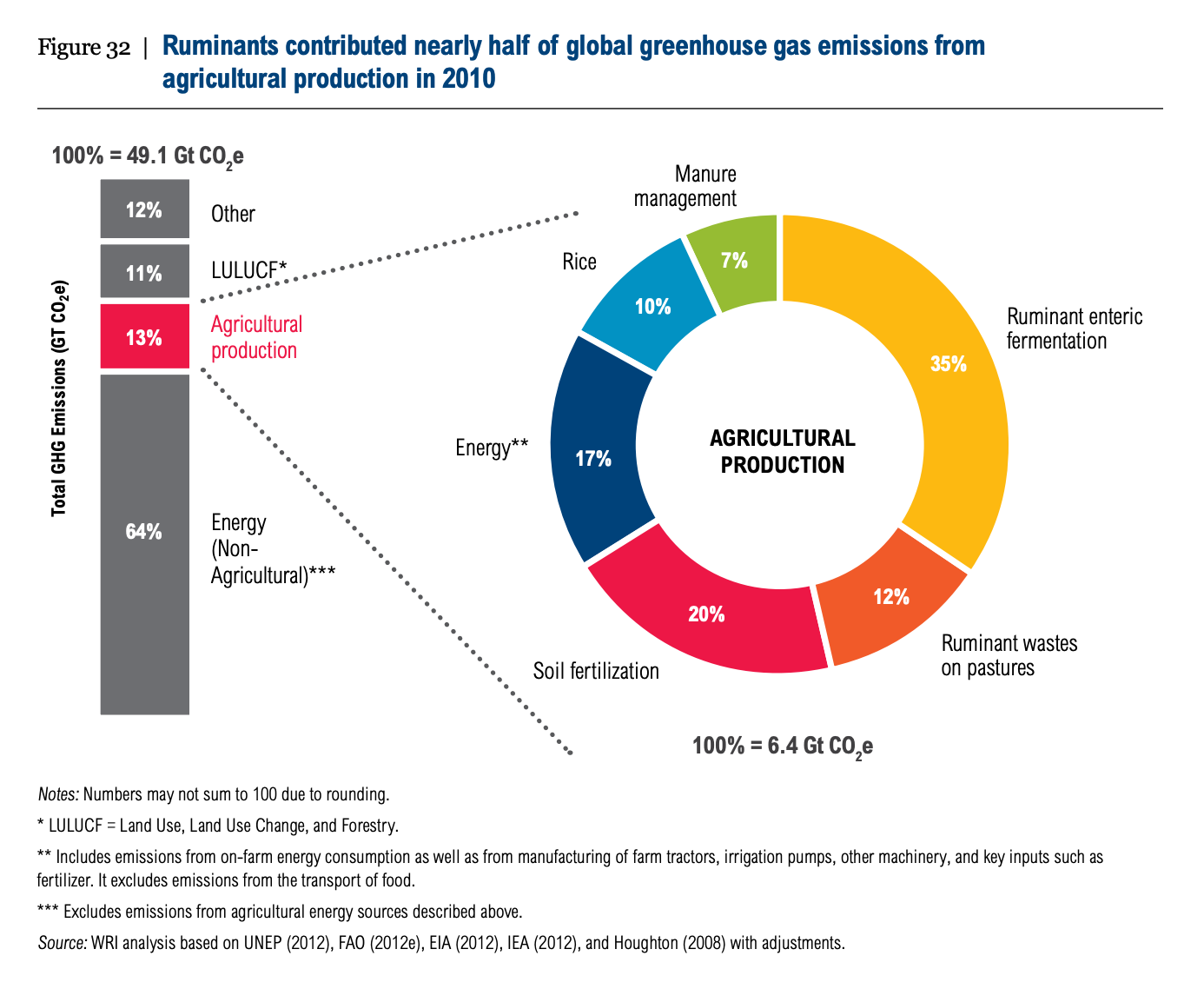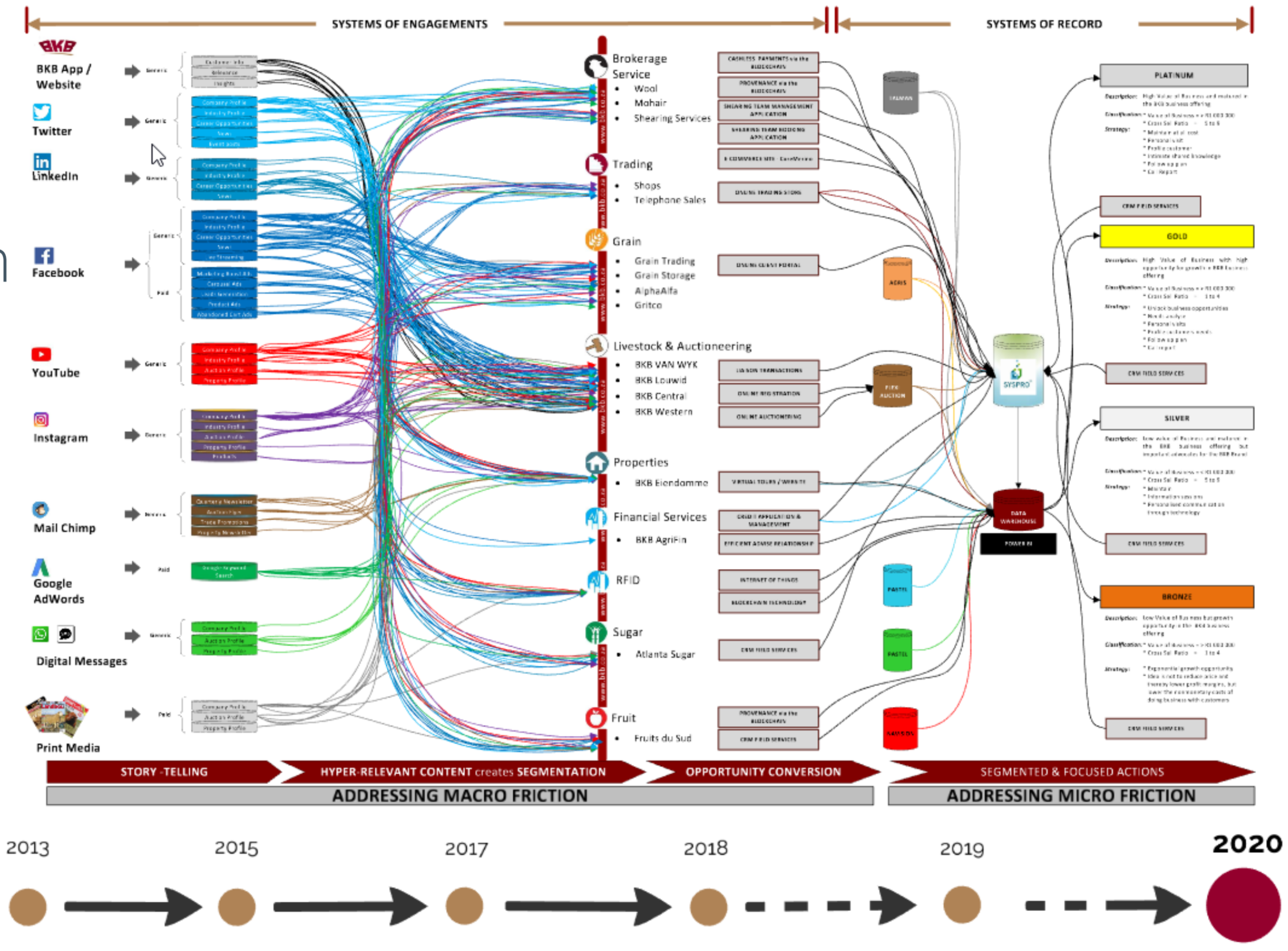Business digital transformation is a buzzword that is misused and not completely clear. For instance, the Wikipedia definition is incomplete and vague: “Digital Transformation (DT) is the use of new, fast-changing digital technology to solve problems often utilizing cloud computing, reducing reliance on user-owned hardware but increasing reliance on subscription-based cloud services.”
G2's chief research officer, Michael Fauscette, provided a more accurate perspective in his blog about digital transformation trends:
“We started ‘talking’ about digital transformation (DX) over a decade ago. In the naivety that was 2008, many believed that the journey was just about technology.”
Instead of trying to clarify what digital transformation is in theory, I thought it would be more useful to share a real-life example: BKB, an agricultural company from South Africa that was founded 100 years ago and needed to reinvent itself to remain competitive in the complex agricultural sector.
BKB is a major player in the South African agricultural sector with a focus on a wide range of activities, including wool and mohair brokerage, livestock auctioneering and sales, and grain storage, processing, and packaging. The company employs roughly 1,500 year-round employees and 2,000 seasonal workers and has 67,000 customers in multiple countries. Furthermore, BKB has a division that provides financial services to agribusinesses across South Africa.
The complexity of its operations was only one of the many factors that led BKB to initiate a digital transformation program in 2013, which is expected to be finalized in 2020. Let’s take a closer look at the reasons that made BKB embark on such an ambitious project.
Why BKB needed digital transformation
As mentioned above, digital transformation is a reality that is forcing companies to adapt, not only to technological advancements but also to market changes, such as:
- Customers and partners demand it. Customers have new expectations, such as the need to be engaged in their favorite communication channels, and they expect companies to share their concerns for the environment or the treatment of the livestock. Partners want more visibility into their supply chain and tighter collaboration with companies like BKB and all its divisions.
- Technology is pervasive in everything we do, at home and work. BKB categorizes its technology in two main categories: systems of engagement (used to interact directly with customers and partners) and systems of record (such as ERP, accounting, and POS). For many companies, the two categories are often disconnected or insufficiently integrated. Also, business processes and workflows aren’t always deployed across the company, which creates silos and slows down decision-making.
- As economic growth slows, business performance becomes critical for companies. Productivity growth is also an issue: according to the Global Harvest Initiative organization “global agricultural productivity must increase by 1.75%” for 10 billion people, while the current growth is only 1.5%. The lack of growth means that more companies from all industries need to be more efficient.
Besides challenges, there are new opportunities that companies can take advantage of. For instance, 6 of the top 10 fastest-growing economies in 2018 were from Africa. According to the National Sustainable Agriculture Coalition, some other important opportunities in agriculture are “the local and regional food movement, alternative livestock production systems and markets, and the growth in organics.”
These challenges and opportunities are what drive digital transformation. As shown by the Wikipedia definition, we tend to think about technology when we hear about digital transformation, but software, devices, internet of things (IoT), or artificial intelligence (AI) can only help when they are part of a business strategy that allows the company to be agile and adapt to its business environment.
How BKB approached digital transformation
The company started with an audit of its technology, processes, and types of interactions with customers and partners. The goal was to identify gaps, bottlenecks, and missing pieces in its operations. BKB looked at what causes friction: first at the macro level, which has the most impact on their business, followed by an analysis of micro-frictions (still in progress).
Besides friction, BKB understood that there is always room for improvement. By combining necessity with creativity, the company came up with a few ingenious ideas, such as creating virtual sheep. This idea helped them better track millions of sheep spread across the country. They were also able to trade animals without the need for buyers to see them.
Jaco Maass, general manager at BKB, described the process as follows: “We put an RFID tag in each sheep’s ear and link it up to the internet. It becomes a digital twin of that sheep that can be moved around on the network. We collect what we call ‘value digital product data’ on each sheep, and when we move sheep to an e-commerce or auctioneering platform, we can say ‘We have all the information on this animal. We know its age, breed, gender, feet conversion, growth history.'”
Other notable drivers for digital transformation were the vision and values of the company. BKB is committed to sustainable and environmentally-friendly agriculture, cruelty-free treatment of animals, support and investing in its employees, and helping develop entrepreneurship opportunities. As shown below, the agriculture industry can have a significant impact on the environment, and ruminants generate half of the global greenhouse emissions from agricultural production.

Vous voulez en savoir plus sur Systèmes ERP ? Découvrez les produits Systèmes ERP.
How SYSPRO helped BKB
Using SYSPRO ERP and POS not only improved processes and increased productivity at BKB, but also had a positive impact on the skill levels of its users. This made it easier for the company to transition to more sophisticated technologies such as IoT and blockchain. Visibility into ERP and POS data also helped BKB identify new business opportunities. For instance, the company realized that 14% of its clients deliver 80% of the value, which means that there is a lot of untapped potential. These facts helped BKB develop its digital strategy and then look for the technology to support it.
BKB also benefited from SYSPRO’s agile software that is easy to adapt to IoT and blockchain technologies, as well as the systems of engagement. After using RFID to track sheep, BKB realized that they could use blockchain technology to improve traceability and trust. The company used IoT technology to integrate SYSPRO ERP with blockchain distributed ledger technology (DLT). This technology, combined with supply chain data from SYSPRO ERP, allowed BKB to improve mobile payments and develop an app to track food safety for raisin farms and their providers of pesticides.
Finally, SYSPRO’s vertical industry focus helped BKB share its challenges and projects with the vendor, which improved the collaboration between the two companies. Unfortunately, too many ERP vendors provide generic software that can be more or less adapted to industry-specific needs. Furthermore, industry expertise isn’t always an important focus for ERP vendors, which means that they are having a hard time understanding customers like BKB. This usually leads to a misalignment between expectations and results and harms the customer experience.
Digital transformation never ends
I’d love to follow up with BKB in 2020 when its digital transformation initiative will be finalized. The transformation itself will not end in 2020, though. The company will need to continuously adapt to changes in its market and adopt new technologies to engage with customers and partners and to improve performance.
At the same time, SYSPRO is also evolving and will support BKB with its ongoing digital transformation. Here are some of the announcements recently made by SYSPRO that will give you a glimpse into its future evolution:
- SYSPRO USA has a new CEO, Geoff Garrett, who not only brings extensive industry expertise but is also a firm believer in a vertical and personalized approach to better understand and support customers. This is part of the “One SYSPRO” strategy, which aims to consolidate its multiple areas of expertise into one comprehensive global presence.
- SYSPRO’s focus on smart manufacturing continues with a new initiative to join industry organizations such as Clean Energy Smart Manufacturing Innovation Institute (CESMII) and by strengthening its relationship with the California Manufacturing Technology Center (CMTC). CESMII’s goals are to democratize smart manufacturing technology and knowledge and to enable the exchange of real-time manufacturing data between people and systems. SYSPRO will be involved in the creation of a platform for smart manufacturing, which will benefit its customers and other manufacturers.
- Connected Services is a new initiative that allows SYSPRO customers to extend their technology through integrations with intelligent devices and other software products. This will help customers eliminate data silos, improve collaboration, enhance workflows and business processes, and make it easier for employees to exchange information. As Paulo de Matos (SYSPRO’s chief product officer) mentioned, “Connected Services represents any digital service that brings people or devices together in any meaningful way to engage, share, and transact.”
New disruptive technologies like RPA, robots, or self-driving trucks, will undoubtedly impact SYSPRO and its customers, as well as most (if not all) other businesses.
To keep up with the latest news and analysis on business technology, visit our new Research Hub.

Gabriel Gheorghiu
Gabriel’s background includes more than 15 years of experience in all aspects of business software selection and implementation. His research work has involved detailed functional analyses of software vendors from various areas such as ERP, CRM, and HCM. Gheorghiu holds a Bachelor of Arts in business administration from the Academy of Economic Studies in Bucharest (Romania), and a master's degree in territorial project management from Université Paris XII Val de Marne (France).

